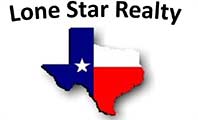If you’ve ever bought or sold a home, you probably remember the moment you saw the closing disclosure with every fee spelled out. For many Texans, that’s when the phrase “sticker shock” really makes sense.
Closing costs aren’t just an afterthought; they can add thousands of dollars to a transaction. And while some fees are well-known, like title insurance or lender charges, others hide in the fine print until the very end. Whether you’re preparing to buy your first home or sell one you’ve lived in for decades, understanding the extra costs before closing day can save you stress, money, and last-minute surprises. For example, knowing the full picture before hunting for homes for sale in Bastrop TX can make decision-making far easier.
First, the Basics
In Texas, closing costs typically range between two and five percent of the purchase price. That percentage may sound modest, but on a $350,000 home, it adds up to $7,000–$17,500. Who pays for which fees are determined partly by tradition, partly by negotiation, and partly by lender requirements.
Knowing the breakdown is important. Buyers generally cover loan and appraisal fees, while sellers often take on title insurance and agent commissions. But inside those categories are “extras” both sides should be aware of.
For Buyers: Fees That Catch People Off Guard
Appraisal Gaps Beyond the First Report
Most buyers expect the basic appraisal, but if value disputes pop up, additional reports can mean extra costs.
HOA Transfer or Certification Fees
If you’re buying in a neighborhood with a homeowners’ association, you’ll likely pay for documents certifying dues, restrictions, and compliance. These can run a few hundred dollars.
Survey Updates
Many Texas homes already have a survey on file, but lenders often require an update. That fee falls to the buyer when the seller doesn’t have a current acceptable one.
Prepaid Property Taxes and Insurance
Lenders frequently require buyers to prepay several months of property tax and insurance premiums into escrow. It’s essentially money you’d pay eventually — but paying it upfront can add thousands at closing, especially when budgeting for homes for sale in Bastrop TX.
For Sellers: Costs That Surprise at the Table
Title Insurance Premiums
In Texas, sellers traditionally pay for the buyer’s title insurance policy. On a mid-range home, this is often one of the single largest closing costs.
HOA Resale Certificates
Along with transfer fees, associations typically require resale certificates describing fees and rules for the property. Sellers generally cover this cost unless negotiated otherwise.
Repair Escrow Holdbacks
If buyers ask for certain repairs before closing, lenders may require funds to be held in escrow until work is complete. That money sits in limbo, belonging to the seller until cleared.
Pro-rated Taxes and Utilities
Sellers often forget they’ll need to cover property taxes and any utilities up to the exact closing date. On year-end closings, that check can be sizable.
Shared or Negotiable Fees
Not every fee is pre‑assigned. Things like escrow charges, attorney’s fees (if applicable), or home warranty contributions can fall to either party depending on local norms and negotiations. A good agent helps clarify early and structure offers accordingly.
Extra Precautions To Take
Request an estimate early. Lenders can provide a Loan Estimate up front that will later be matched against final numbers.
- Ask your title company questions. They handle most document and transfer charges.
- Negotiate clearly. If you want the other party to contribute to certain costs, state it in the contract.
- Set aside extra funds. Even with the best planning, small variance fees (like courier or notary expenses) can surface.
Frequently Asked Questions About Closing Costs
So, who pays more in closing costs, the buyer or the seller?
It can be very close, but sellers often have a slightly higher total closing cost because the real estate agent commissions—typically the largest single fee in the entire transaction—are paid from their proceeds. However, a buyer’s out-of-pocket cash needed for closing is often higher because it includes their down payment in addition to their closing costs.
Can I roll my closing costs into my mortgage loan?
In some cases, yes, but it depends on the type of loan and the lender. Some loan programs allow you to finance a portion of your closing costs, but this will result in a higher loan amount and a slightly higher monthly payment. The more common strategy is for the buyer to pay their closing costs as a one-time, out-of-pocket expense at closing.
What is the difference between an owner’s title policy and a lender’s title policy?
A lender’s policy protects the mortgage lender’s financial interest in the property up to the amount of the loan. A owner’s policy protects the new homeowner’s equity and their right to the property. Even if you are paying cash for a home, it is always highly advisable to purchase an owner’s title policy to protect your investment. In Texas, the seller typically pays for the owner’s policy.
What is a “point” on a mortgage loan?
A “point” is a fee equal to 1% of the loan amount. Sometimes, a buyer can choose to pay “discount points” upfront at closing in order to “buy down” their interest rate for the life of the loan. This is a strategic decision that depends on how long you plan to stay in the home.
How can I reduce my closing costs as a buyer?
While many costs are fixed, there are a few ways to potentially reduce them. You should always shop around for your mortgage, as different lenders may have different origination fees. You can also negotiate with the seller to pay for certain items, like the survey or a home warranty. Finally, carefully reviewing your Loan Estimate and Closing Disclosure with your agent is crucial to catch any potential errors or junk fees.
How Buyers and Sellers Can Reduce Closing Surprises
Closing costs don’t need to be a mystery, but they often feel like one without early preparation. Buyers should budget for more than just down payments, while sellers should remember that title insurance, commissions, and association fees may take more out of proceeds than they expect. This advice is often emphasized by agents in home realty in Bastrop.
At Lone Star Realty, our Bastrop realtors walk clients through the process, so no one is blindsided at the closing table. Being prepared for hidden costs not only makes the experience smoother but can also set the stage for successful negotiations between buyers and sellers.
If you’re planning a purchase or sale in Texas soon, understanding the “extra” costs today can help you put the best deal together tomorrow.




